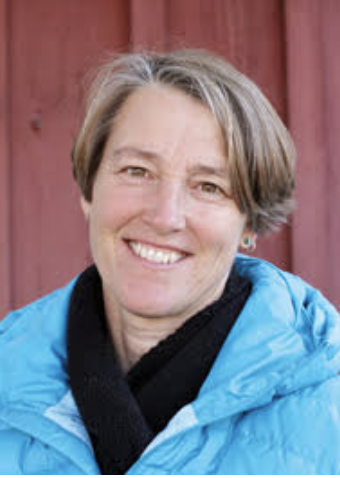Image: Jean Larson, nature-based therapeutics faculty leader at the Bakken Center for Spirituality and Healing and the Minnesota Landscape Arboretum, emphasizes using elements of nature in mental health healing. (Courtesy of Jean Larson)
‘Recreation and play are the honey of medicine,’ says Larson, who founded a nature-based therapeutics partnership between the Bakken Center and the Minnesota Landscape Arboretum
By Emily Baude
If Jean Larson could reimagine the University of Minnesota, it would be where student housing included animals, gardens, biophilic design and intentional interior spaces.
“Recreation and play are the honey of medicine,” said Larson, who is the nature-based therapeutics faculty leader at the Bakken Center for Spirituality and Healing and the Minnesota Landscape Arboretum. “I know from personal experience this to be true and wanted to share it with others.”
Since the early 1990s, a version of Larson’s vision has existed through a partnership between the Bakken Center and the Arboretum. The long-standing relationship has allowed the University to include a range of so-called nature-based therapeutic services to students using elements of nature and interacting with the environment.
Currently, nature-based therapy takes the form of coursework, webpages and outreach events. Through the Arboretum, multidisciplinary facilitators can consult with students in order to design a custom program that will meet their strengths and needs. As one of those facilitators and the founder of nature-based therapy, Larson believes that “mental health, like physical health, is important at every stage of life.”
Although she does not have a mental health diagnosis, Larson said she has a learning disability, which has given her plenty of challenges in academics. Nature has been a constant remedy for that stress.
“My learning difference is a gift,” Larson said. “Realizing this changed my approach to life.”
Early in her career, Larson served as director of a wilderness campin the Arrowhead region of Minnesota. This position was key in developing her connection with nature and her subsequent ideas of nature-based therapy, she said.
After graduating from the University of Minnesota, Larson was the director for several wilderness camps. She eventually pursued her doctorate in education with an emphasis in therapeutic recreation, at which point she worked as a therapeutic recreation specialist in a variety of treatment facilities. Serving as a recreation specialist allowed Larson to further connect with nature.
Larson said that her vision for a transformed university already exists at Cornell University. The model at Cornell functions via a program called Nature Rx, which is based on the premise that the time spent in nature is therapeutic and contributes to personal well-being. But Larson’s program at the Arboretum is much smaller and does not have the campus-wide programming to reach as many students.
Even so, Larson hopes the existing resources inspire students to intentionally make time to slow down from their frantic academic lives and find a comfortable place to sit for a moment outside in nature. She also suggested taking time for some deep healing breaths.
“On the inhale think ‘I am grateful’ and hold, then on the exhale ‘for the trees who give us oxygen’” she said. “Do this a number of times, each time identifying something in nature you’re grateful for. It takes five minutes and I guarantee you’ll feel better.”
